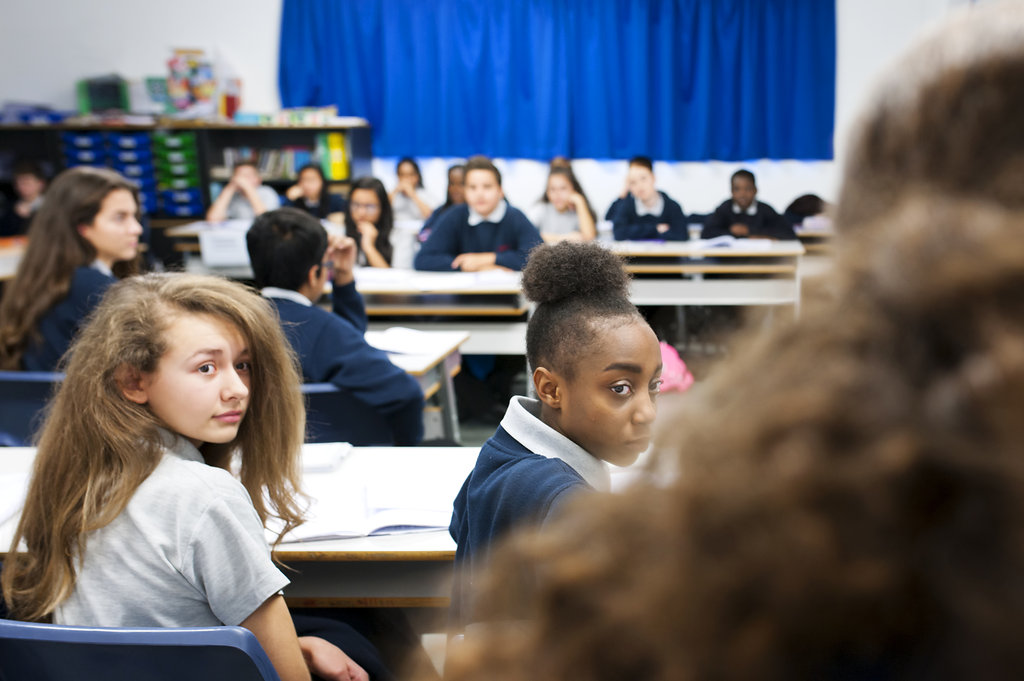CURRICULUM
Our curriculum supports our vision of Success for All. We offer a rich, broad and balanced curriculum which prepares students for the next phases in their education or employment and allows students to ACHIEVE their full potential.
Knowledge is Power allows us to ensure we have a knowledge rich curriculum. Our subject leaders have thought carefully about the key knowledge students need to remember in order to be successful in their subject. The curriculum is well sequenced. Staff carefully consider prior learning and have a clear rationale for the topics covered and the order in which they are delivered. This allows students to build on knowledge and make progress year on year. We recognise the need to help students retain key knowledge and teach Thinking Hard strategies to ensure students can remember key content. Our weekly CPD programme ensure staff are up to date on the latest educational research and that this is used to plan effective lessons.
We recognise the importance of literacy across the curriculum. Key subject specific vocab is taught to ensure students can access the curriculum. Students are encouraged to answer questions in full sentences using key vocab where appropriate.
Our whole school initiative character is key ensures character education is at the forefront of what we do. A focus on the 5Rs allow students to become Resilient, Resourceful, Reflective learners who Respect each other and take Responsibility for their learning and behaviour.
Our curriculum is ambitious for all students. Our setting arrangements are fluid as we believe students develop at different rates and that one student may excel in one subject but need support in another. At KS3 students study a curriculum that goes beyond the National Curriculum. Our KS3 curriculum does not narrow too early allowing students to study a range of important topics providing a good foundation for KS4 and just as importantly providing them with a core of knowledge for the future in the option subjects they may not study after Year 9. Raising aspirations and developing cultural capital is important given our local context. Alongside our taught KS3 curriculum, our outstanding Out of School Hours Learning programme, drop down ACHIEVE days and extra -curricular offer help us achieve this.
We offer a wide range of courses at KS4 and KS5. The breadth of our curriculum offer meets the needs and local context of our school community. Our free but guided option choice in KS4 means students are engaged in courses they enjoy, leading to improved behaviour and outcomes. Our destination data and positive progress data shows that our curriculum is effective.
TIMETABLE AND CURRICULUM DESIGN
KS3
At JRCS we have a three-year KS3. We believe this is important to ensure students gain a broad education covering a variety of subjects which promotes cultural capital and social mobility.
We have a good balance of subjects as detailed in the table below:
| Subject | Hours per fortnight | ||
| Year 7 | Year 8 | Year 9 | |
| English | 9 | 9 | 10 |
| Maths | 8 | 8 | 8 |
| Science | 6 | 6 | 6 |
| Art | 2 | 2 | 2 |
| DT and Food | 2 | 2 | 2 |
| Drama | 2 | 2 | 2 |
| Geography | 3 | 2 | 2 |
| History | 2 | 3 | 2 |
| ICT | 2 | 2 | 2 |
| MFL | 4 | 4 | 4 |
| Music | 2 | 2 | 2 |
| PDE | 2 | 2 | 2 |
| PE and Dance | 4 | 4 | 4 |
| RS | 2 | 2 | 2 |
KS4
At KS4 all students study English, Maths, Science, PE (non- exam) and PSHE. Students must then take one option from the following subjects: French, Geography, History. Students then have three further guided option choices from the wide range of courses that are listed below. The timetable and option blocks are then constructed around student choices which allows us to have a number of pathways for our students’ ensuring students are on courses that interest them and promote engagement.
| Hours per fortnight | ||
| Year 10 | Year 11 | |
| English Language and English Literature GCSE | 8 | 10 |
| Maths GCSE | 8 | 8 |
| Dual or Triple Science GCSE | 8 | 8 |
| PE (non-exam) | 2 | 2 |
| PSHE/RS (non-exam) | 2 | 0 |
| Option subjects x 4 | 5 per subject | 5 per subject |
OPTION SUBJECTS
GCSE: Art, Business Studies, Computer Science, DT Product Design, Dance, Drama, Food Science, French, Geography, History, Media Studies, Music, PE, RS, Spanish, Triple Science.
Vocational: Business and Enterprise, Construction, Engineering, Food and Catering and Sport.
KS5
At KS5 we work with four other schools in order to strengthen the breadth of our curriculum offer. The formal curriculum and extra-curricular opportunities of the Five School Partnership is intended to have a positive impact on students’ personal development, behaviour and welfare.
There is a wide range of subjects and study programmes offered and these include Level 3 academic and vocational programmes as well as Level 1 vocational programmes. The Level 3 programme of study is intended to enable aspirational progression to higher education or higher-level apprenticeships. The Level 1 programme of study is intended to enable students to progress onto appropriate employment or Level 2 studies, with emphasis on life skills and preparing students beyond education.
The enrichment curriculum develops leaders of the future through its varied programme of extra-curricular and pastoral activities. It gives ample opportunity for students to develop their own sense of character and breeds a positive culture of philanthropy through connection with social issues around them. It also has a focus on health, both physical and mental, providing students with the skills of resilience and empathy preparing them for life in the 21st century.
The curriculum structure facilitates students to be able to follow a range of future career pathways including medicine, law, architecture and the creative industries. Information, advice and guidance is provided to students through specific programmes within the curriculum that enhance employability skills and ambitious advancement. Our KS5 offer can be seen on our Sixth Form webpage.



